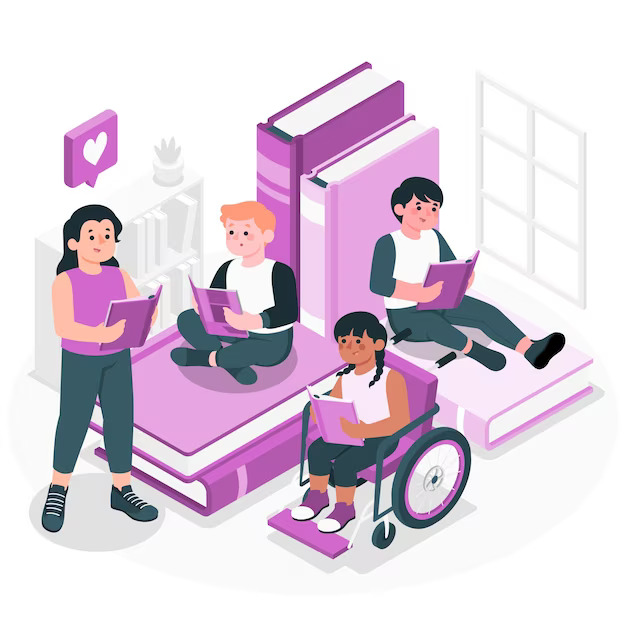Learning Disability Counselling is a specialized form of support designed to help individuals with learning disabilities navigate the challenges they face in academic, social, and emotional areas of life. This counseling involves assessing the specific learning needs of the individual and developing tailored strategies to enhance their learning experiences. It also addresses the emotional impact of living with a learning disability, offering tools to build self-esteem, manage frustration, and cope with anxiety.
Is learning disability curable?
Learning disability are not curable, but they are manageable with the right support and interventions. These disabilities are lifelong neurological conditions that affect how individuals process information, making tasks like reading, writing, and math more challenging. However, with early identification, personalized education plans, and tailored strategies, individuals with learning disabilities can develop effective coping mechanisms and achieve success in both academic and everyday life.
What is the Role of a Learning Disability Counsellor?
If your child has learning disability issues, consulting with “Kid Therapy“ can provide the specialized support they need. “Kid Therapy” offers expert assessments to identify your child’s challenges and create personalized plans to help them succeed.
-
Assessment and Diagnosis: Conducts assessments to identify specific learning disabilities and provides a clear diagnosis.
-
Individualized Support Plans: Develops personalized intervention plans tailored to the individual’s unique needs and challenges.
-
Educational Support: Collaborates with educators to create effective learning strategies and accommodations within educational settings.
-
Emotional and Behavioral Counseling: Provides counseling to address emotional and behavioral issues related to learning disabilities, such as low self-esteem, frustration, or anxiety.
-
Skill Development: Helps individuals develop coping strategies, study skills, and organizational techniques to manage their learning challenges.
-
Family Counseling and Support: Offers guidance and support to families, helping them understand the learning disability and how to support their loved one effectively.
-
Advocacy: Acts as an advocate for individuals with learning disabilities, ensuring they receive appropriate resources and accommodations.
-
Social Skills Training: Assists individuals in developing social skills to improve their interactions with peers and build positive relationships.
-
Transition Planning: Supports individuals in planning for transitions, such as moving from school to work or higher education.
-
Collaboration with Other Professionals: Works with other professionals, such as psychologists, special educators, and occupational therapists, to provide comprehensive support.
-
Crisis Intervention: Provides immediate support during crises, such as emotional breakdowns or significant academic challenges.
-
Education and Awareness: Educates individuals, families, and the community about learning disabilities and promotes awareness and acceptance.
-
Monitoring Progress: Regularly monitors the individual’s progress and adjusts support plans as needed.
-
Resource Referral: Connects individuals and families with additional resources, such as support groups, educational programs, and community services.
It’s difficult to watch your child struggle with a Learning Disability, but professional support can make a big difference. Online counselors are here to help your child overcome challenges and achieve their best.
Signs of Learning Disability in Children
Recognizing the signs of Learning Disability in children early can make a big difference in their development.
-
Difficulty Reading: Struggles with recognizing letters, words, or comprehending what they read.
-
Trouble with Writing: Has problems with spelling, writing letters or words, or expressing ideas in writing.
-
Math Challenges: Finds it hard to understand basic math concepts, perform calculations, or recognize numbers.
-
Poor Memory: Has difficulty remembering information, instructions, or sequences, such as steps in a task.
-
Problems with Attention: Struggles to focus on tasks, easily distracted, or unable to complete assignments.
-
Difficulty Following Directions: Has trouble understanding and following oral or written instructions.
-
Coordination Issues: Exhibits poor motor skills, such as difficulty with hand-eye coordination or clumsiness.
-
Speech and Language Delays: Experiences delayed speech development, trouble understanding language, or difficulty expressing themselves verbally.
-
Difficulty with Time Management: Struggles with understanding concepts of time, such as being late or unable to plan and organize tasks.
-
Behavioral Problems: Shows signs of frustration, anxiety, or behavior issues that may stem from learning difficulties.
-
Avoidance of Academic Tasks: Avoids activities that involve reading, writing, or math, often due to fear of failure or frustration.
-
Social Skills Challenges: Has trouble interacting with peers, understanding social cues, or making and keeping friends.
-
Low Self-Esteem: Exhibits a lack of confidence, frequently says “I can’t do it,” or shows signs of feeling inadequate compared to peers.
In conclusion, early identification of Learning Disability in children is crucial for their academic and personal development. Recognizing the signs and seeking professional support can help your child overcome challenges, build confidence, and reach their full potential.

